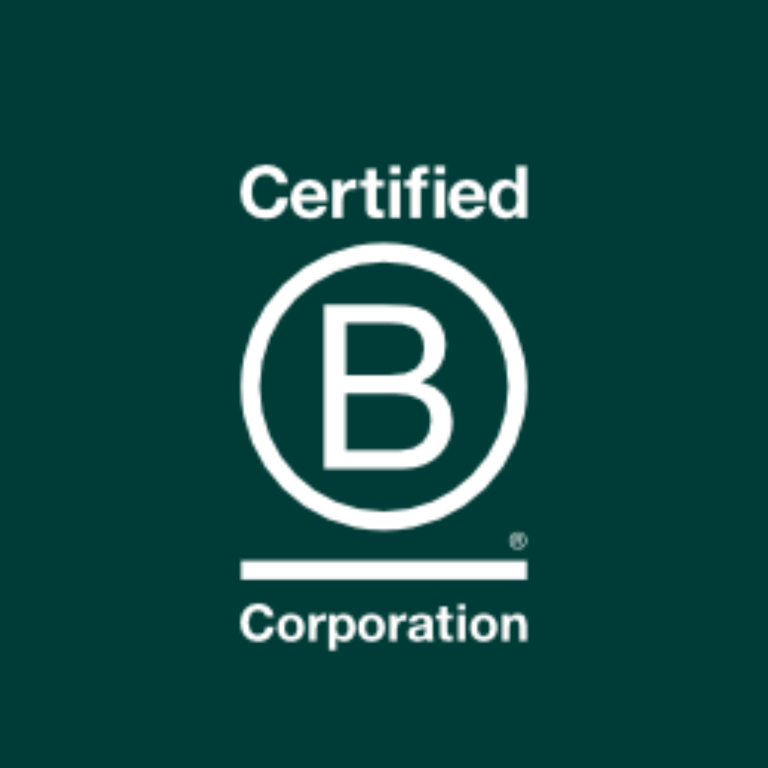Capital, InsurTechs & Return on Investment: Key Themes from the MGA Advisory Board
Reflections from GreenKite CEO Sara Ager
An innovation in the early 2000s, the MGA structure is important and established in the insurance value chain and – in many ways – the go-to for ‘greenfield’ firms, especially InsurTechs, in 2022.
It’s opened up insurance for new entrants, new capacity and newmodels, and remains an entrepreneurial space, where key players (including some at this roundtable) are developing whole ecosystems to deliver and provide access to customer.
It doesn’t seem that long ago since the original group of insurance leaders got together to set up the Managing General Agents’ Association as an organisation (including me – I drafted the terms of reference). The MGAA now boasts 170 members –104 of which are Lloyd’s coverholders – and an increasing number of InsurTechs.
This roundtable has made me reflect on what we’re seeing with our focus on all aspects of delegated authority. GreenKite works with both sides of the MGA relationship: with capacity partners and MGAs. What we’ve helped firms to achieve is really about helping to forge a true partnership between both sides of that relationship and less of the ‘David and Goliath’ relationship it used to be.
We know how critical an investment in the right internal infrastructure is for intermediaries, whether that’s through technology, culture or the right risk management and governance set-up and approach. I, for one, did not need the ongoing Financial Conduct Authority/regulatory focus on operational resilience and, most recently, on outsourcing relationships (and appointed representatives, specifically) to convince me that one of the most important contributions we can make is to help our clients get that infrastructure right at all stages in their development.
There needs to be proportionality of regulation that supports firms to grow and prosper responsibly, but equally there’s no doubt that a sector the size and power of the MGA world should expect to attract ever more focus from the range of stakeholders.
It’s a maturing space: a volume of small, growing firms side by side with a clutch of very large firms with more and different choices for accessing capital, setting up their own syndicates, captives and even acting as a reinsurer. Arguably, the reality check of the need to offer real return on investment means the ‘price it high, stack it cheap’ approach is well in the past.
Some other key themes for me were:
- How do MGAs continue to be ‘best at customer acquisition’?
- The signal importance of being demonstrably better at pricing and delivering fair value to customer while delivering to capacity partners on growth and on the loss ratio.
- The key differentiator of technology: the right choices will deliver (process and cost) efficiencies, while less than optimal choices could result in an extinction level event.
We look forward to supporting the Insurance Post team, as it develops coverage in this important area.
Conducted under Chatham House rules, here is a summation of the key points that came up, which concerns everything from capacity to capital, and data- sharing to whether managing general agents are actually still MGAs.

Jonathan Swift – Insurance Post Content Director, Insurance
1. There needs to be more emphasis on partnership
There has been a lot of discussion around capacity in the MGA space recently. Indeed, one of the points raised by the participants was that most news about MGAs seemed to revolve around the issues of capacity withdrawal/contraction rather than positive headlines.
One contributor commented that the contracts between smaller MGAs and insurers were often less favourable than for the more established players, driven by the need for them to establish themselves, grow and reach a size where they have more sway. However, they added the expectations of “good capacity providers” are changing because carriers appreciate more than ever that they need to be a “true partner” for the insurer and MGA to be successful.
Another added: “And by partner, I mean partner. In that they are looking to add value. Because they know by doing so they will attract MGAs who will provide the best value and return on their capital.”
There was some discussion about the time taken to sign deals, which – in some cases – had increased to the point that they were detrimental to an MGA’s ability to be agile.
“Let’s manage the due-diligence process, so it is not taking nine to 12 months to get an agreement done. Because if it takes one year, you’ve potentially missed an opportunity in the market. So, I’d tell insurers to make sure the DD process is fair. Managing expectations and delivering on promises. But getting it done faster, with the same level of quality DD because you can’t wait months and months to get these things finished,” commented one senior manager.
2. Lloyd’s is missing out on business by being inflexible
“We have shifted quite a bit of business away from Lloyd’s recently, for two reasons. First, one-year deals are not particularly attractive to us. We would prefer three and ideally five – and Lloyd’s struggles with that,” commented one MGA boss.
“Secondly, you are always at the whim of the active underwriter and a particular individual. So, in our case we had an example where [the underwriter] decided they did not like e-traded business. But there is a lot that can be done with e- traded business and, subsequently, we could not get him to change his mind, so we moved £150m of premium over five years away from that Lloyd’s syndicate.
They continued: “Then, at the last minute, the CEO telephoned me and said: ‘what is happening?’ I said: ‘Your underwriter does not fancy this type of business,’ and he responded: ‘Well, we have to back our underwriter’. That is a classic example of what happens.”
There seemed to be some broad consensus that the issue of cost of capital in Lloyd’s meant it was easier to negotiate with other [non-Lloyd’s] insurers.
Although it was suggested that the evolution of the Syndicate-in-a-box model might change things.
“It is now looking at longer-term propositions for MGAs, but the amount of business it must have lost over the years is significant,” another participant explained. “We are a Lloyd’s and company market coverholder, and when we have done a big new agreement recently it has been in the company market and not Lloyd’s, and that is due to the multi-year nature.”
They added that 10 to 15 years ago, an MGA could get [an insurance] binder done within weeks, but now it takes one year, and the “frictional costs have become too much to bear”.
3. On the flip side, Lloyd’s does have its advantages
For balance, it should be added that the gathering was not completely negative on Lloyd’s.
“For us, there are two massive benefits of Lloyd’s and one is licenses. So the capability for a business like ours, which writes directly into US, Canada, Australia and Europe – and yes there was bump in the road with Brexit – but that is huge,” commented one MGA representative.
“By contrast, we got close to signing a capacity deal with one of the major global insurers, and then it fell down as they could not do the licensing in a number of the territories because they could not make it work internally. They had entities in those countries, but they could not make the two talk, so we said “don’t worry” and walked away. But Lloyd’s just does that, so when we are talking to any brokers or partners in those territories that is a box ticked.”
It was also commented that Lloyd’s is attractive when seeking alternative capital, and had a global brand, which still had a lot of currency.
4. Alternative forms of capital
A number of the panel shared their experiences of undertaking [often expensive] exercises exploring alternative forms of capital, with some conceding that they had not yet found anything better than what they currently have.
However, others noted that they had either chosen this avenue, or were still considering it, with a host of options mentioned from index-linked securities to catastrophe bonds, and sovereign wealth funds to captives.
5. What would the existing capacity think?
With the discussion turning to the benefits – or otherwise – of owning a risk baring entity, questions were posed about how this might sit with insurance companies that an MGA presently worked with.
As one attendee commented: “When you start to go down this route, what does your existing capacity think? What do they see? If you have an existing arrangement with someone and then you bring in your own captive do they think ‘well I am going to get selected against here’? Do they think you’ll shift all the decent stuff into this [new] arrangement and leave them with everything that sits outside? Or does its spark them into being more competitive?”
Another person offered a more positive take: “Alternatively it does signal an intent for future growth. So assuming [the insurer] keeps being a good partner; and assuming they keep working with an MGA in the way it wants them too; and the MGA keeps generating the necessary returns, both sides should be happy. And if an insurer tries to tip the balance, the MGA has that optionality [of using its own capacity] too. But you need size, scale and track record to be able to have that kind of leverage.”
6. When is an MGA not an MGA?
At this juncture the roundtable pondered on whether the separation between carriers and MGAs was getting increasingly blurred.
“The media and brokers get fixated on MGAs and insurers, and the demarcation is there to some extent, but I am not as convinced it is as black and white as it used to be,” one person commented. “And over the next few years you are going to see more businesses be more creative about how they use capital rather than say they have to go to an insurer to get it.”
“Our role is to bring as many sources of capital through licensed vehicles into the insurance market as possible,” another added. “Whether that is through a syndicate, partners or reinsurance”. Roundtable attendee
Indeed, comparisons were drawn with the personal lines broker market where businesses such as Hastings and AA have large panels, but also own their own capacity. This then led to a conversation about the great quality of data owned by these brokers and the suggestion that in the future there might be a replication of this model in the micro small and medium-sized enterprises model for MGAs.
7. Data exchange needs to be equal
The roundtable unanimously agreed that data was key to their growth, as they believed that they had to select risks better than insurers to add value and create a unique selling point to thrive. As one attendee noted: “We always have to prove ourselves because it is easier to turn off an MGA binder than the work they are doing themselves. So, we have to be better and that means acquiring a lot more information – not just data – which they don’t have themselves.”
This led to the interesting question about whether the MGAs thought that data exchange between insurers and themselves was equal?
“My experience is that we have not had that information flow coming back the other way, and this is true not just of delegated underwriting, but delegated claims handling too. So, trying to get back even the most basic claims information either on time, or at a level you can use, has been frustrating,” commented one, which summed up a broad consensus among many around the table.
Another commented: “I spoke to an insurer and asked if we could have the claims data, and they said: ‘why, nobody else has asked for it, so why would you want it’. I genuinely had a battle with them, as they did not want to show, it or see any reason why we might want the claims data.”
Reasons suggested as to why insurers might not want to share data with MGAs included channel conflicts, namely doing similar lines themselves, and concerns over data breach risk. “We just get questions; questions, questions, and then they’ll always find a reason not to share data,” one MGA representative revealed.
There was some evidence that things were changing though regards two-way communication, with one attendee noting that some more forward-thinking insurers are now more interested and willing to offer MGAs input and feedback, and even offering consultancy services to retain good business.






